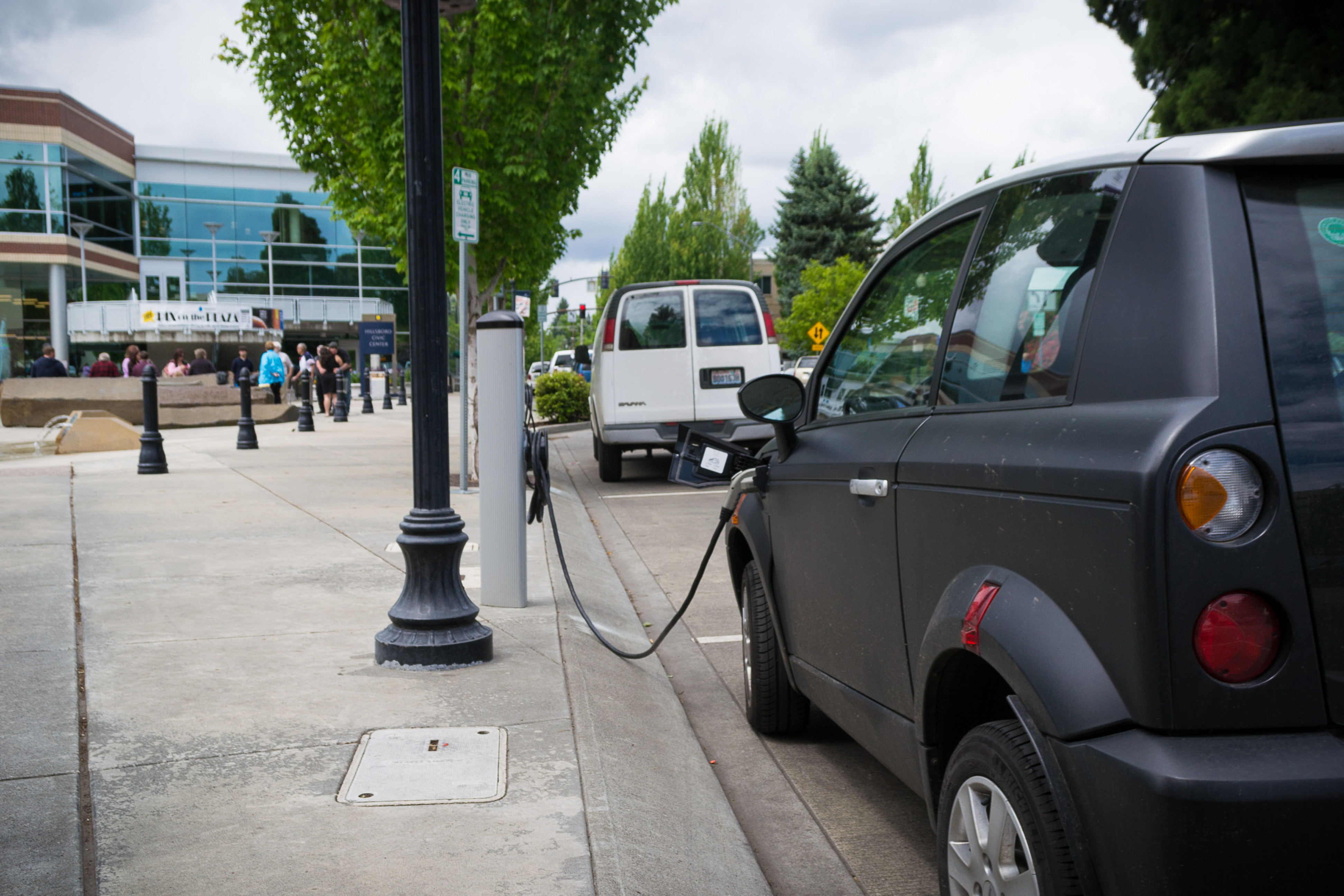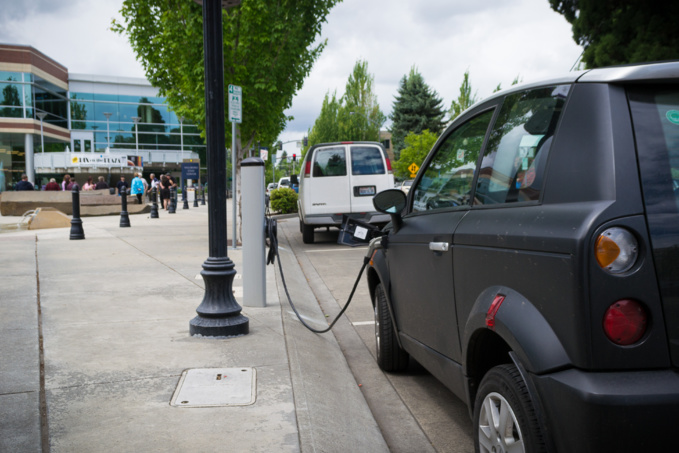Everyone is preparing for the transition from gasoline to electricity: automakers are stepping up the production of hybrid and fully electric cars, and the authorities expect that this will help reduce the number of harmful emissions into the atmosphere. However, experts emphasize that it is necessary to provide motorists with the necessary infrastructure, because no one will buy an electric vehicle if there’s nowhere to recharge.
In October, several international companies, such as Royal Dutch Shell, Ford, ABB, announced large-scale projects to create networks of charging stations for electric cars. The Dutch-British Shell is going to install fast-charging points at its British gas stations. The first stations for electric vehicles will appear in London, as well as in the counties of Surrey and Derby. The company promises that car owners will be able to charge their car batteries for 80% just within half an hour. By the end of the year, fast charging stations will appear at ten Shell filling stations. A few days before the launch of this program, the company bought a Dutch start-up NewMotion, which develops charging points for cars in Europe.
The day after Shell announced its intention to expand its own network of charging stations, Ford came up with a similar statement. The American auto concern has already begun to install charging stations for electric vehicles at its facilities to encourage its employees to purchase or lease electric cars. Over the next two years, the company intends to increase the number of charging stations threefold - from 200 to 600. "Workplace is the second most popular place where people would like to charge their electric car," said Steve Henderson, head of the Ford electrification program. "If we give people an opportunity to recharge at work, we will significantly increase the chances of mass introduction of electric vehicles."
In early October, the Swedish-Swiss industrial company ABB responded to the tender of the Government of India, providing for the installation of 4,5 thousand charging stations for electric vehicles. The Indian authorities want to popularize electric vehicles to improve the ecological situation in the country. The government expects that by 2030 all cars in the country will work on electric engines. 10 thousand electric cars will be purchased as a first step on the way to achieving the goal.
According to the International Energy Agency, now the share of electric vehicles from total world sales of cars is only 0.2%. Nevertheless, over the past year, sales of cars with electric motors grew by 60%, and the trend of such rapid growth will continue in the next few years. So, analysts of Bloomberg New Energy Finance have calculated that in 2021 about 5% of cars sold in Europe will be electric vehicles; this figure is expected to reach 4% in the US and China. Yet, all this requires appropriate mass infrastructure. According to Morgan Stanley estimates, it will be necessary to spend about $ 2.1 trillion on creating an infrastructure for 500 million electric vehicles. At the same time, Bloomberg New Energy Finance says that the electro revolution will not happen until 2040 – then, number of electric cars on the roads for the first time will exceed the number of cars with gasoline and diesel engines.
source: bloomberg.com
In October, several international companies, such as Royal Dutch Shell, Ford, ABB, announced large-scale projects to create networks of charging stations for electric cars. The Dutch-British Shell is going to install fast-charging points at its British gas stations. The first stations for electric vehicles will appear in London, as well as in the counties of Surrey and Derby. The company promises that car owners will be able to charge their car batteries for 80% just within half an hour. By the end of the year, fast charging stations will appear at ten Shell filling stations. A few days before the launch of this program, the company bought a Dutch start-up NewMotion, which develops charging points for cars in Europe.
The day after Shell announced its intention to expand its own network of charging stations, Ford came up with a similar statement. The American auto concern has already begun to install charging stations for electric vehicles at its facilities to encourage its employees to purchase or lease electric cars. Over the next two years, the company intends to increase the number of charging stations threefold - from 200 to 600. "Workplace is the second most popular place where people would like to charge their electric car," said Steve Henderson, head of the Ford electrification program. "If we give people an opportunity to recharge at work, we will significantly increase the chances of mass introduction of electric vehicles."
In early October, the Swedish-Swiss industrial company ABB responded to the tender of the Government of India, providing for the installation of 4,5 thousand charging stations for electric vehicles. The Indian authorities want to popularize electric vehicles to improve the ecological situation in the country. The government expects that by 2030 all cars in the country will work on electric engines. 10 thousand electric cars will be purchased as a first step on the way to achieving the goal.
According to the International Energy Agency, now the share of electric vehicles from total world sales of cars is only 0.2%. Nevertheless, over the past year, sales of cars with electric motors grew by 60%, and the trend of such rapid growth will continue in the next few years. So, analysts of Bloomberg New Energy Finance have calculated that in 2021 about 5% of cars sold in Europe will be electric vehicles; this figure is expected to reach 4% in the US and China. Yet, all this requires appropriate mass infrastructure. According to Morgan Stanley estimates, it will be necessary to spend about $ 2.1 trillion on creating an infrastructure for 500 million electric vehicles. At the same time, Bloomberg New Energy Finance says that the electro revolution will not happen until 2040 – then, number of electric cars on the roads for the first time will exceed the number of cars with gasoline and diesel engines.
source: bloomberg.com



















